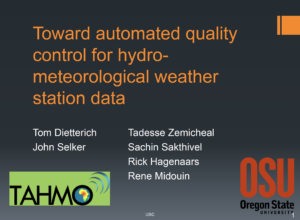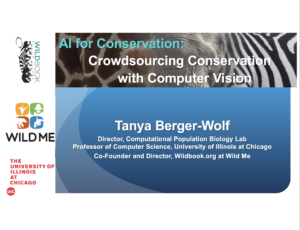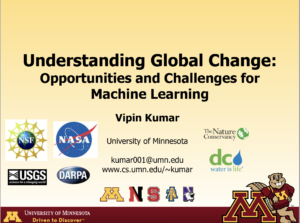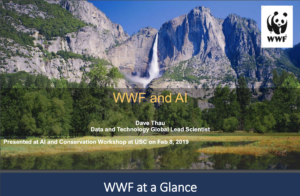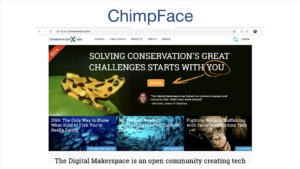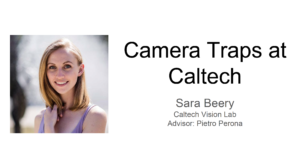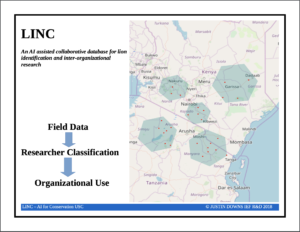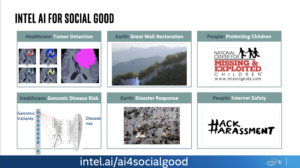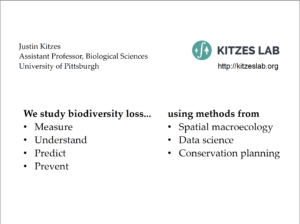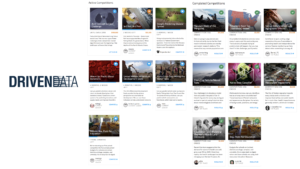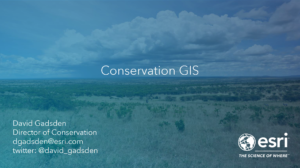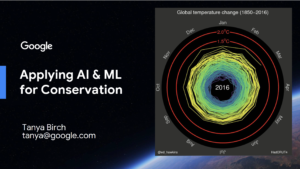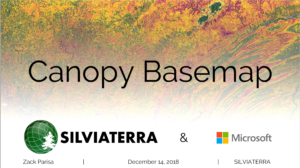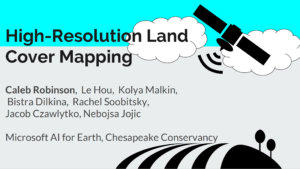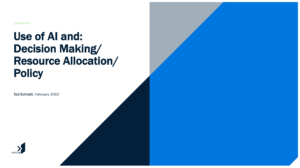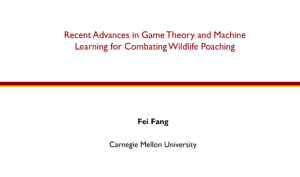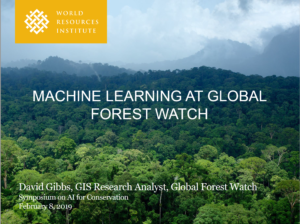OVERVIEW
The Symposium on AI for Conservation will be held at the University of Southern California (USC) in Los Angeles, CA on February 8th, organized by Prof. Bistra Dilkina and sponsored by the Microsoft AI for Earth program.
The event will focus on the potential for artificial intelligence to critically inform the monitoring and conservation of Earth’s natural resources (e.g., biodiversity, forests, water). This is a community-building event between researchers, practitioners, and corporate organizations that are dedicated to preserving Earth’s resources. The goal is to identify needs, gaps and challenges, to crystalize research opportunities, and to establish deepening partnerships.
We are planning an exciting agenda with invited talks outlining some of the key AI contributions in this space (including Tanya Berger-Wolf, Tom Dietterich, and Vipin Kumar), as well as short talks from conservation organizations outlining some of the key challenges in the field. In the afternoon, we will have additional lightning talks by researchers and nonprofit organizations participating in the event together with moderated in-depth discussion sessions to brainstorm and develop the research agenda and opportunities for AI to inform data collection, predictive modeling, and resource allocation for environmental domains and conservation.
KEYNOTES
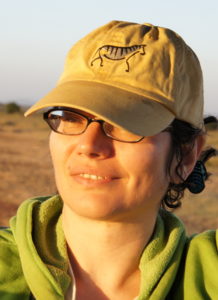
Tanya Berger-Wolf
Crowdsourcing Conservation with Computer Vision
Dr. Tanya Berger-Wolf is a Professor of Computer Science at the University of Illinois at Chicago, where she heads the Computational Population Biology Lab, and a co-founder of Wildbook.org, an AI for conservation project of WildMe.org, which she directs. She is a computational ecologist, whose research is at the unique intersection of computer science, wildlife biology, and social sciences.
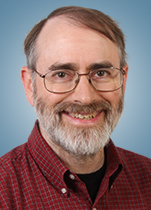
Tom Dietterich
Automated Quality Control for a Weather Sensor Network
Dr. Thomas Dietterich is Distinguished Professor (Emeritus) at Oregon State University. He is the Assistant Director of CompSustNet, an NSF Expedition led by Carla Gomes (Cornell). His research focuses on anomaly detection, reinforcement learning, and robust AI.
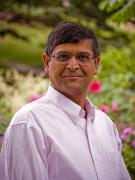
Vipin Kumar
Understanding Global Change: Opportunities and Challenges for Machine Learning
Dr. Vipin Kumar is a Regents Professor and holds William Norris Chair in the department of Computer Science and Engineering at the University of Minnesota. His research interests include data mining, high-performance computing, and their applications in climate/ecosystems and health care. He is currently leading an NSF Expedition project on understanding climate change using data science approaches.
AGENDA
08:30-9:00 BREAKFAST
09:00-09:05 Opening Remarks, Bistra Dilkina
INVITED TALKS
09:05-9:25 Tom Dietterich (Automated Quality Control for a Weather Sensor Network)
9:25-9:45 Tanya Berger-Wolf (Crowdsourcing Conservation with Computer Vision)
9:45-10:05 Carla Gomes (Title TBD)
10:05-10:25 Vipin Kumar (Understanding Global Change: Opportunities and Challenges for Machine Learning)
10:25-10:40 BREAK
10:40 -10:50 Dan Morris, Microsoft AI for Earth (Automating Image-Based Biodiversity Surveys)
10:50 -11:00 Bistra Dilkina, USC Center on AI in Society (CAIS overview)
11-12 CONSERVATION PANEL
- TNC, Matt Merrifield
- Leonardo diCaprio Foundation, Karl Burkart
- WWF, David Thau
- San Diego Zoo, Gabriel A. Miller
- Conservation International / Wildlife Insights, Eric Fegraus
12:00-1:20 LUNCH
SESSION 1: Species and Poaching Recognition Algorithms in Visual and Acoustic data
1:20-1:40 Lightning Talks
-images
- WildMe, Jason Holmberg
- ChimpFace, Paul Bunje
- Caltech, Sara Beery
- Lion Identification Network of Collaborators (LINC), Justin Downs
- Intel AI for Social Good, Anna Bethke
-sound
- National Audubon Society, Doss Dingli
- ConservationMetrics, Matthew Mckown
- UPitt, Justin Kitzes
-video
- DrivenData, Peter Bull
1:40:-2:20 Discussion
SESSION 2: AI approaches leveraging Remote Sensing Data for Conservation
2:20-2:35
- ESRI, David Gadsden
- Google Earth, Tanya Birch
- SilviaTerra, Zack Parisa, Founder
- GeorgiaTech, Caleb Robinson
- Bloomberg, Sreejith Menon
- Carnegie Institution for Science, Phil Brodrick
2:35-3:15 discussion
3:15-3:25 Group Photo
3:25-3:40 BREAK (15 mins)
SESSION 3: Optimization / Resource Allocation / Policy
3:40-3:55 Lightning Talks
- Vulcan, Ted Schmitt
- CMU, Fei Fang
- Purdue, Yexiang Xue
- USC, Phebe Vayanos
- WRI/Global Forest Watch, David Gibbs
3:55-4:30 discussion
CLOSING SESSION
4:30-5:00 Other Themes, Planning how to growing the community, Recap
Following the symposium, there will be an informal happy hour at The Lab, located across from campus.
ATTENDING ORGANIZATIONS
The following organizations/institutions will have members in attendance:
Bloomberg
California Institute of Technology
Carnegie Institution for Science
Carnegie Mellon University
ChimpFace
Conservation International
Conservation Science Partners
ConservationMetrics
Cornell
ESRI
Google
Google Earth
Intel
Leonardo DiCaprio Foundation
Lion Identification Network of Collaborators (LINC)
Microsoft
Oregon State University
Purdue
RainforestConnection
San Diego Zoo
SERVIR
SilviaTerra
SMART
The Nature Conservancy
University of Illinois at Chicago
University of Massachusetts Amherst
University of New Mexico
University of Pittsburgh
University of Southern California
Virginia Tech
Vulcan
WildBook
Wildlife Conservation Network
WildME
World Resources Insitute (WRI)
World Wildlife Fund




